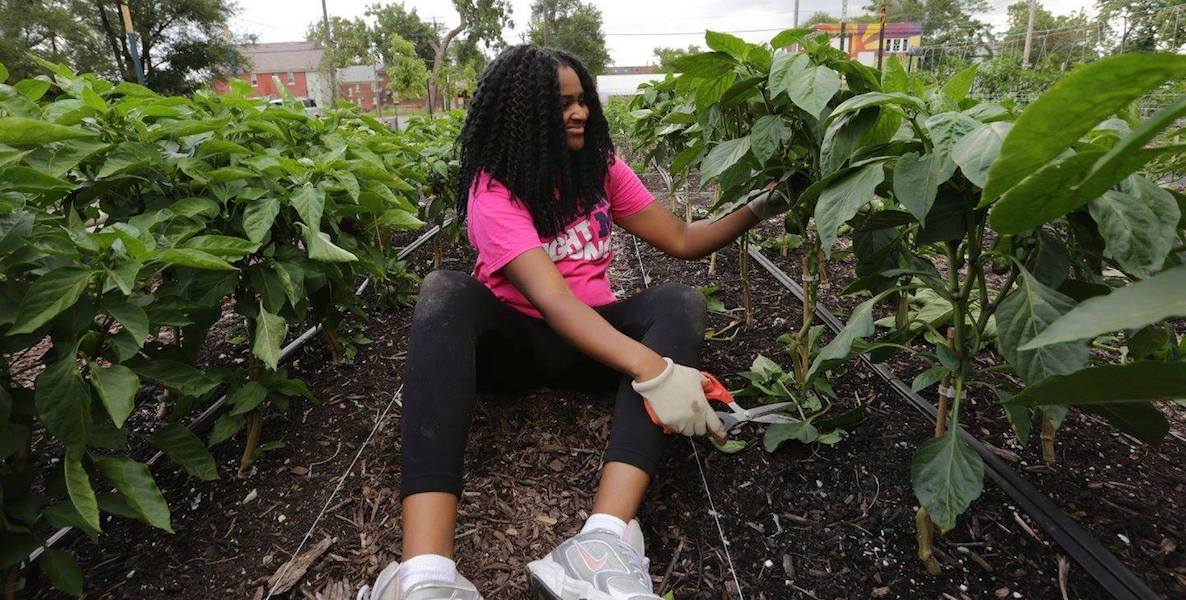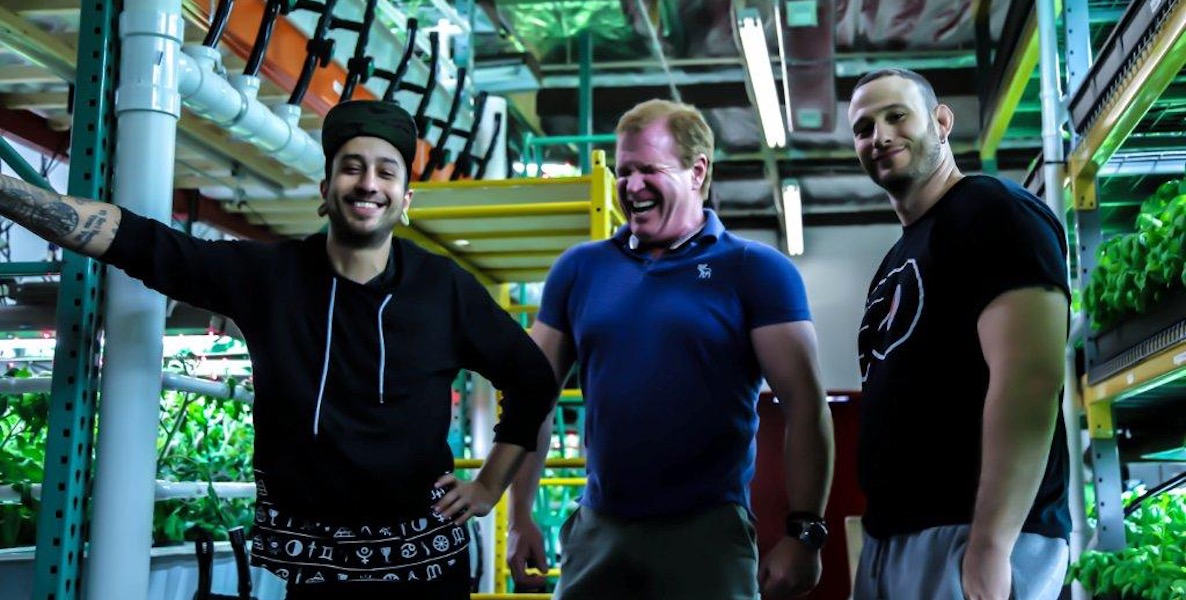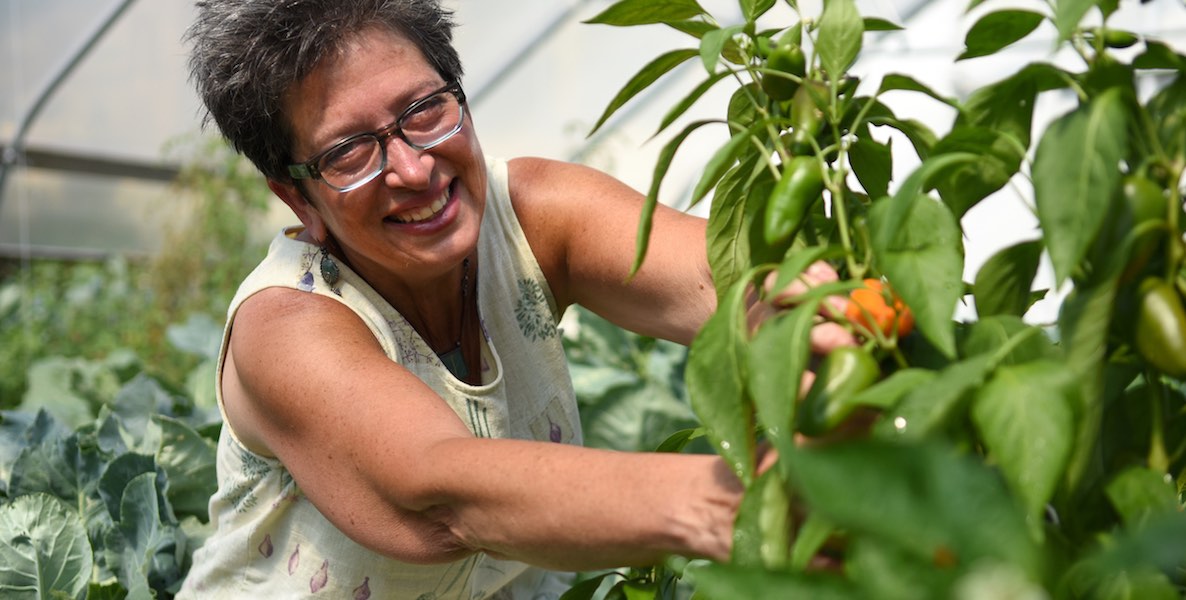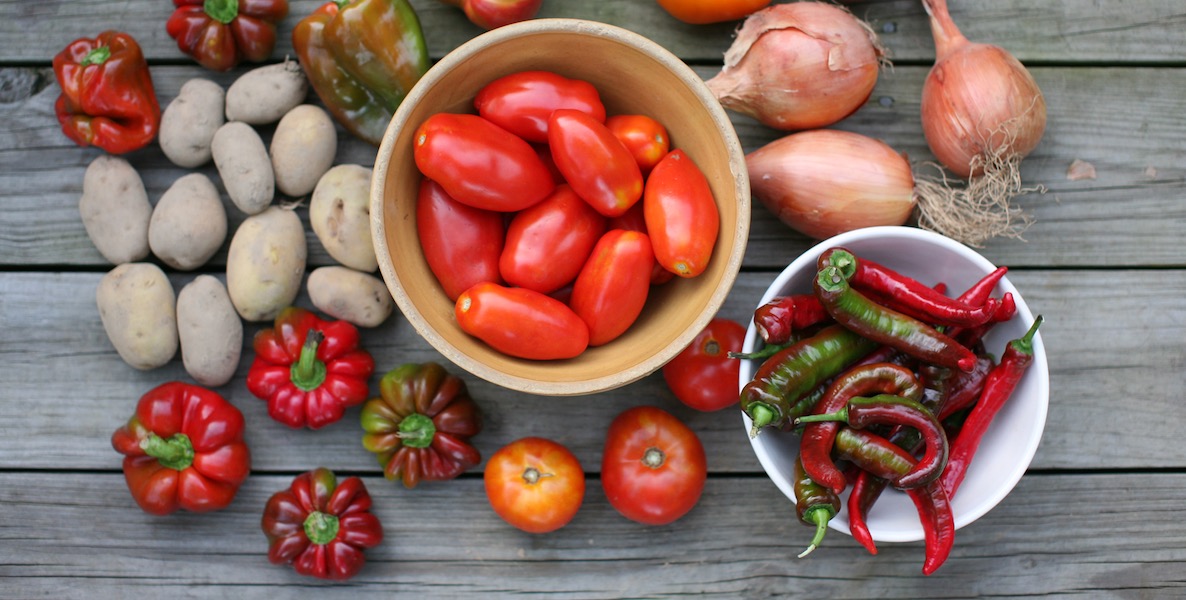As a pediatrician at St. Christopher’s Hospital in North Philadelphia, Hans Kersten comes face to face, every day, with a glimpse of what could be a grim future. His patients often show up to his office overweight and malnourished, the result of poor diet and inactivity. They suffer from repeated infections, and hospital stays and mental health issues. Even the youngest among them face serious lifelong ailments, like obesity, high blood pressure, diabetes and heart disease.
Traditional medicine—the kind Kersten learned in medical school—can only do so much for these patients. Their biggest issue, strictly speaking, is not medical. It’s poverty, and its continuous impacts on health—in particular, the lack of access to fresh, affordable, healthy food. St. Christopher’s is surrounded by food deserts, neighborhoods that are far from produce-laden grocery stores. It doesn’t take a doctor to make the connection—poor diet equals poor health.
That’s why Kersten, in partnership with the St. Christopher’s Foundation for Children, helped to pioneer Fresh Rx, a “prescription” for a box of fresh produce through the Foundation’s Farm to Families program. Since 2010, Farm to Families has distributed around 45,000 low-cost farm share boxes to families, mostly in North Philadelphia. Through Fresh Rx, Kersten and several other doctors at St. Chris and other area health centers have written around 4,200 prescriptions for the farm shares, which patients’ families can pick up at several locations in the area.
“Any kind of illness or health challenge you have will be made better by changing your diet,” says Jan Shaeffer, president of the St. Christopher’s Foundation, a nonprofit that is separate from the hospital. “It’s like a drug that fits everything.”
The idea is simple, powerful, and effective: For $10 to $15 a week—which can come from SNAP food benefits—patients can start to adopt a diet that will improve the health of every generation in their family. “Any kind of illness or health challenge you have will be made better by changing your diet,” says Jan Shaeffer, president of the St. Christopher’s Foundation, a nonprofit that is separate from the hospital. “It’s like a drug that fits everything.”
Since 2015, when The Citizen last wrote about Farm to Families, the program has expanded to seven locations in North Philadelphia, including one on Temple’s campus; another eight to 10 are set to open in the next year or two, including one in Camden. Some 10 different departments at Temple University Hospital are talking to St. Chris about adopting the Fresh Rx program into their practices. Most importantly, more families are accessing the food boxes. Shaeffer says Farm to Families sells around 300 boxes of produce a week, to a rotating number of families.
After strategically growing slowly for its first several years, St. Chris is now poised to launch the program widely. In the last several months, the foundation has created what Shaeffer describes as a database, available to any organization to essentially franchise Farm to Families in neighborhoods around the city. The database allows groups to keep track of orders, communicate with Lancaster Farm Fresh, send reminders to customers, order produce and keep track of client needs. For $25,000 a year (which includes the subsidies on the food boxes), St. Chris will provide the database, licensing, signage, food subsidy and staffing help to get the program running. The fee, in turn, goes to pay for Farm to Families sites in and around North Philly, which the foundation funds in their entirety. Temple University has the first site not operated by St. Chris, launched by two medical students and now run by a professor in the med school.

Get More From Every Story
We include boxes in nearly every story to help you take action. Click the boxes below to see how you can make Philly better.
“It’s a turnkey set up that allows for really rapid expansion if someone wants to do it,” says Shaeffer. “You tell us you want to do it, we’ll bring you the whole thing. Now you have a food access program.”
Farm to Families operates the same way as most farm shares. Customers pay in advance for either a small box ($10) or a large box ($15) of extremely fresh produce, from Lancaster Farm Fresh, a collective of Amish and Mennonite farmers who bring their fruits and vegetables to Philadelphia four days a week. (“Every day the box is different—that’s how fresh it is,” Shaeffer notes.) Families then pick up their share at the location closest to them. The pickups are open to the public. The regular cost is $18 for a large box and $15 for a small one; St. Chris picks up the difference for low-income customers.

Right now, all those locations are in North Philadelphia. Shaeffer says the eventual goal is to have a Farm to Families outpost in every zip code in Philadelphia. Several neighborhoods do already have access to low-cost produce through farmers markets—some run by individual urban farms, and several by The Food Trust—that operate once or twice a week during the warmer months. Farm to Families operates all year round; families, after all, need oranges and broccoli even in the winter. (This has meant a change to Lancaster Farms’ mission of all-organic produce, all the time. Shaeffer says she negotiated with them to include citrus, which does not grow naturally in winter. “Our customers need to eat healthy, not necessarily organic,” she says.)
One thing has remained consistent as St. Chris has worked to improve health through Farm to Families: The discovery of ever more needs. Through its new database, farm share locations will be able to more easily track customers, to find out who is consistently using the service, and what they need moving forward. If, for example, 2,000 customers don’t have a vegetable peeler—a likely scenario for many families—St. Chris might find a way to provide one in an upcoming box. Or, Shaeffer says, they can start an incentive program, perhaps offering families who buy 10 boxes a free crock pot in which to cook their produce.
“We’re discovering all the time what the need is, and how to meet that need,” Shaeffer says. “We’re trying to get to the point where no matter where you are, we can get you what you need.”
Header photo by Christopher Paquette via Flickr





